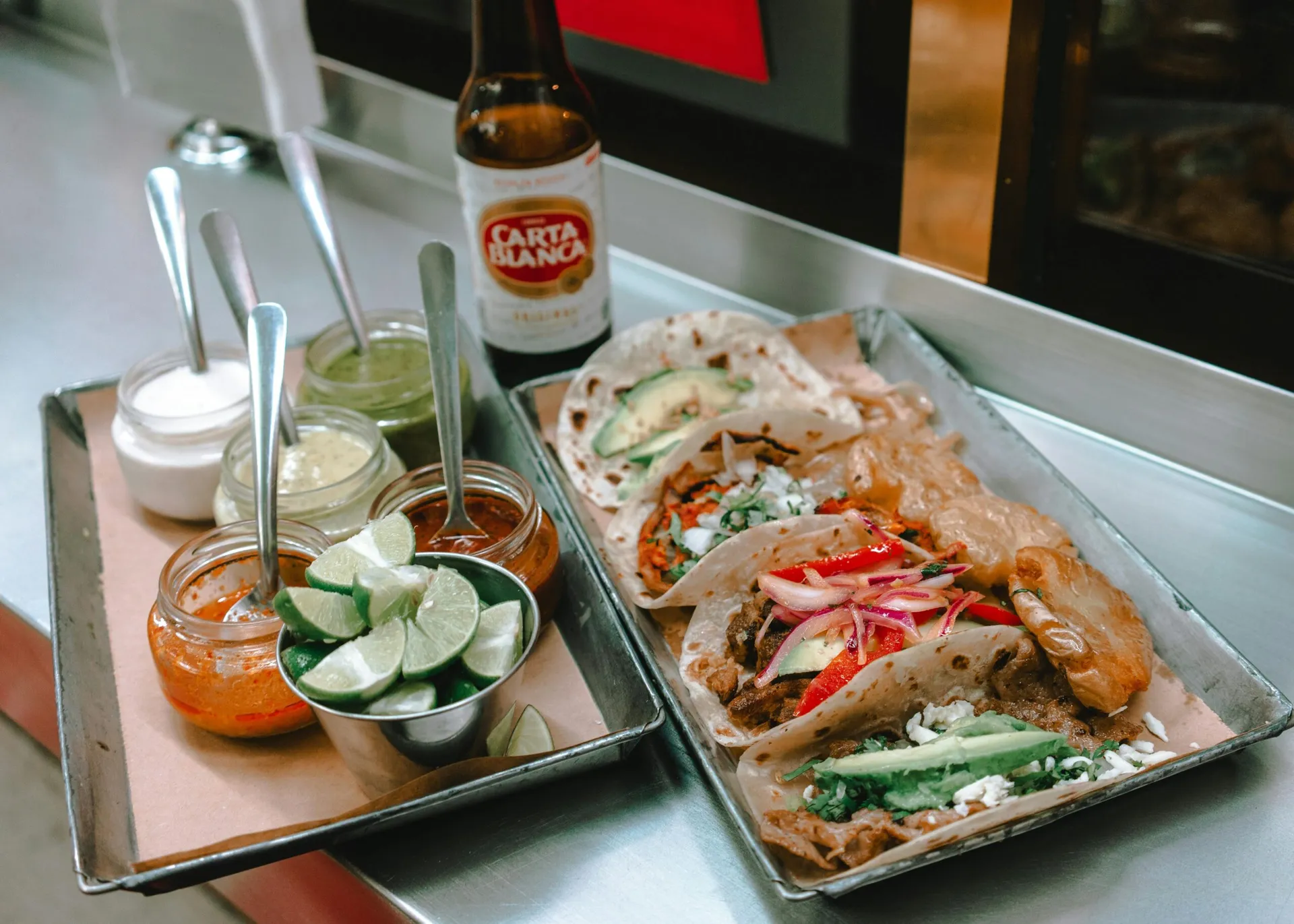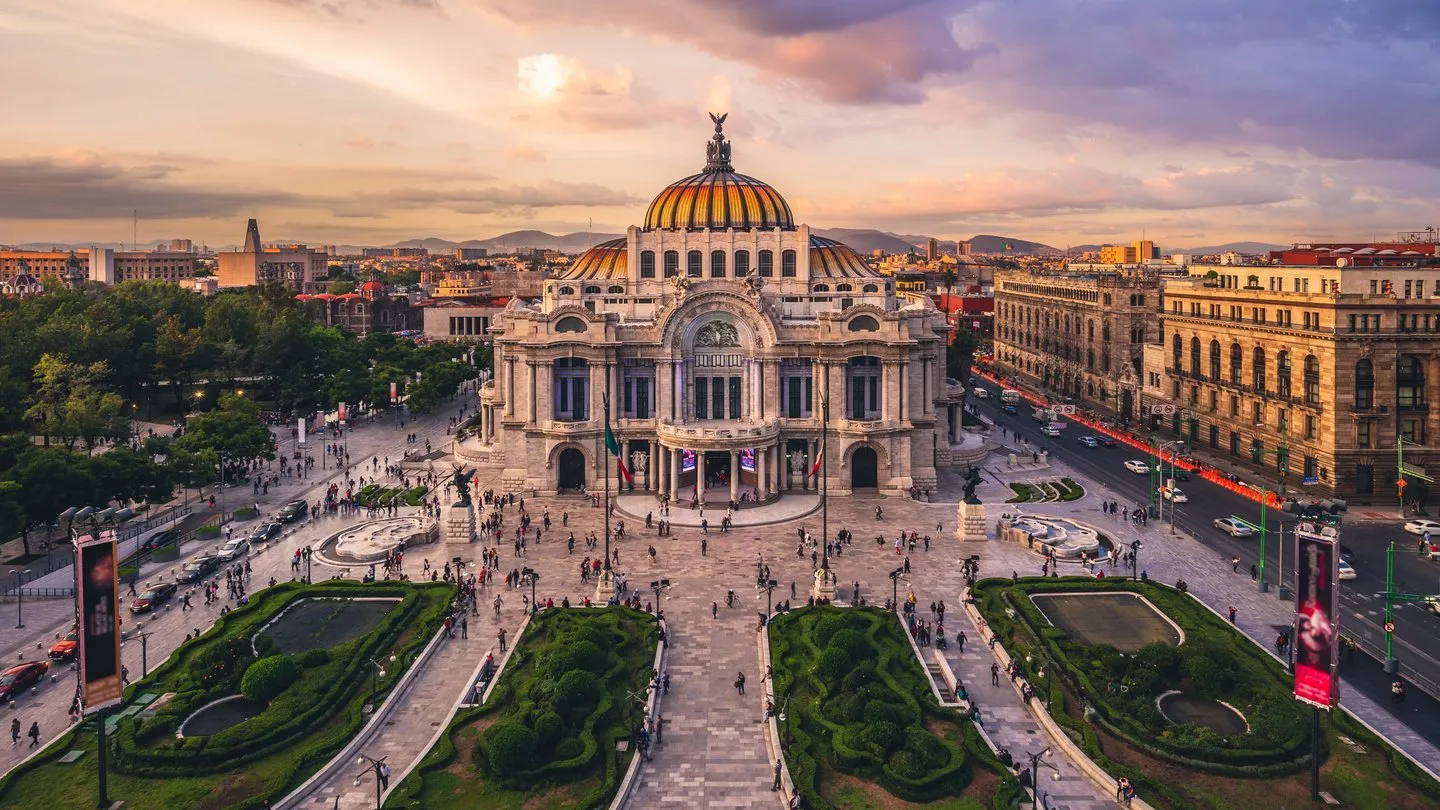If you're searching for best coffee in Mexico, you're in for an exceptional experience. Mexican coffee is celebrated worldwide for its rich, complex flavors and premium quality, making it a favorite among coffee enthusiasts. Mexican coffees are crafted using 100% Arabica beans grown at high altitudes in regions like Chiapas, Oaxaca, and Veracruz. These beans deliver distinctive flavors with notes of chocolate, nuts, and spices, earning them global recognition.
Renowned brands such as Marino Coffee and BUNA Coffee lead the way in sustainability and ethical sourcing. Marino Coffee offers hand-roasted beans from Chiapas, Veracruz, and Oaxaca, highlighting citrus and chocolate undertones. BUNA Coffee focuses on ecosystem regeneration and features organic blends with flavors like piloncillo, cacao, and nuts. For the ultimate experience, consider single-origin Mexican coffee from regions like the El Triunfo Biosphere Reserve. These Fairtrade and Organic coffees not only taste amazing but also support local communities. From light, fruity Veracruz Reserve to bold, chocolatey Oaxaca Reserve, Mexican coffee caters to every palate with its diverse and captivating flavors.
A Tour Through Mexico’s Coffee Regions
The Highlands of Chiapas and Oaxaca
Mexico's coffee landscape is richly diverse, and two of its most renowned coffee-growing regions are Chiapas and Oaxaca. Located in the southern part of the country, these regions boast high altitudes, fertile volcanic soils, and a climate that is ideal for coffee production.
Chiapas, for instance, is known for its rich, nutty flavor profiles, often described as having a medium body and balanced acidity with notes of chocolate and nuts.
In Oaxaca, the coffee is characterized by a more complex taste, featuring notes of fruit and chocolate. The region's unique microclimates and high altitudes contribute to the distinct flavor profiles, making Oaxacan coffee a favorite among those who appreciate a lighter to medium body with bright acidity and citrus and floral undertones.
Veracruz: Tradition and Aroma
Veracruz stands out as one of Mexico's most historic and aromatic coffee regions. With its coffee production dating back to the 18th century, Veracruz has developed a rich cultural legacy around coffee.
The region is divided into 10 coffee-growing areas, each with its own unique characteristics. Coatepec, for example, is famous for its high-altitude coffee with fruity and floral notes, while Huatusco and Sochiapa produce coffees with intense flavors and velvety bodies.
The coffee from Veracruz is known for its exceptional quality, thanks to the fertile volcanic lands, warm and humid climate, and traditional production methods. Many Veracruz coffee growers still adhere to artisanal production techniques, which add a unique touch to their coffee. The region's coffee is often described as having a well-balanced flavor profile with hints of chocolate, spices, and nuts, and it holds the Denomination of Origin, a seal that guarantees its quality and authenticity.

Puebla and Guerrero
While Chiapas, Oaxaca, and Veracruz are the most celebrated coffee regions in Mexico, Puebla and Guerrero also contribute significantly to the country's coffee production. Puebla, though less prominent, offers a range of coffee flavors influenced by its varied terrain and climate. The state's coffee is often grown in smaller, family-owned farms that focus on sustainable and organic practices, contributing to a diverse and high-quality coffee output.
Guerrero, on the other hand, is known for its rugged terrain and diverse ecosystems, which create a variety of microclimates suitable for coffee production. The coffee from Guerrero is often characterized by its bold flavors and medium to full body, with notes that can range from earthy and smoky to fruity and floral.
Both Puebla and Guerrero offer unique coffee experiences that, while less well-known, are equally worth exploring for their distinct flavor profiles and traditional production methods.
Exploring Coffee Culture in Mexico’s Cities
Café Innovations in Mexico City
Mexico City, the vibrant capital, has undergone a significant transformation in its coffee culture over the past decade. The city has emerged as a hub for specialty coffee, with a plethora of innovative coffee shops that are redefining the traditional coffee experience. One of the pioneers in this movement is Café Avellaneda, located in the charming neighborhood of Coyoacán.
Founded by Carlos de la Torre, this café is known for its high-quality, estate-grown beans and its unique coffee tasting menu, Popurrí, which takes customers on a journey through various Mexican coffee regions and brewing techniques.
The city's coffee scene is also marked by the rise of modern brewing methods and a focus on direct trade relationships with farmers. Cafes like Cardinal Casa de Café in Roma Norte and La Condesa, and Quentin Café in Condesa and Roma, stand out for their meticulous roasting and brewing processes.
These establishments not only serve exceptional coffee but also create a welcoming atmosphere, often featuring minimalist designs and artisanal furniture, which enhances the overall coffee experience.
In addition to the aesthetic appeal, these coffee shops have become community hubs where people gather to socialize, work, or simply enjoy a quiet moment. They frequently host events such as coffee tastings, workshops, and barista competitions, further solidifying their role in the local coffee culture. The influence of global coffee trends is evident, but Mexico City's coffee scene retains its unique cultural identity, blending tradition with innovation.

Coffee Experiences in Mexico City
Mexico City, known for its cultural richness and cosmopolitan energy, offers a vibrant coffee experience that blends tradition with innovation. The city's coffee culture is shaped by specialty cafés that source beans directly from small Mexican farms, emphasizing sustainability and regional identity.
In neighborhoods like Roma, Condesa, and Coyoacán, visitors can explore cafés that showcase both traditional and modern methods. For example, Café Negro in Coyoacán serves café de olla, a traditional Mexican brew made with cinnamon and piloncillo, offering a comforting taste of the past in a cozy, artistic setting.
Another standout is Café Tormenta in Roma Norte, a vinyl-infused coffee bar that features unique drinks like the Latte Rosita and Óleo Coldbrew, made with locally roasted beans and designed to highlight flavor complexity. The café regularly partners with Mexican farmers and hosts tastings to educate guests. The place is so well-known that it has been visited by pop singer Dua Lipa during her visit to Mexico.

For a historic twist, Café de Tacuba in the city center combines early 20th-century architecture with traditional Mexican coffee and cuisine. Its rich ambiance offers a deeper cultural immersion alongside your cup.
Some cafés, such as Dharma Coffee Roasters, offer workshops where visitors can learn about brewing techniques, coffee origins, and sustainable practices. Others, like Bou in Colonia Roma, focus on pairing artisanal coffee with locally made pastries in laid-back, community-oriented spaces.
From traditional clay-pot brews to curated barista tastings, Mexico City's coffee experiences provide an unforgettable journey through the country's coffee-growing regions—without ever leaving the capital.
Diving Deep: Find Out Why We Recommend Mexican Coffee
1- Global Impact and Recognition
Mexican coffee has made a significant impact on the global coffee scene, earning international recognition for its quality and unique flavor profiles. As the 10th largest coffee producer globally, Mexico contributes more than 2.3% to global coffee production, with a notable presence in the specialty coffee market.
The country's coffee industry has been bolstered by initiatives such as the "Café de México" brand, which was established to promote Mexican coffee on the international stage. This branding effort has helped position Mexican coffee as a premium product, highlighting its quality and distinct flavors.
Mexican coffee is particularly renowned for its high-quality Arabica beans, with varieties like Typica, Bourbon, and Caturra being highly sought after by coffee connoisseurs worldwide.
Mexico's participation in global coffee trade is also marked by its strong export relationships, with the United States being the primary market for Mexican coffee. The country exports green, roasted, and soluble coffee beans, catering to a diverse range of consumers and contributing to the global coffee supply chain.
2- Sustainability in Coffee Farming
Sustainability is a cornerstone of Mexican coffee farming, with many producers adopting organic and fair-trade practices. Mexican coffee producers often participate in cooperatives, which enable small farmers to pool resources, share knowledge, and access international markets. These cooperatives play a role in ensuring fair trade practices and helping farmers receive better prices for their coffee, thereby improving their living conditions and promoting sustainable farming practices.
The Fair Trade movement has also gained significant traction in Mexico, with many coffee producers seeking Fair Trade certification. This certification ensures that producers receive a minimum price for their coffee, promoting economic stability and encouraging sustainable farming practices. Additionally, community development initiatives, such as education and healthcare access, are often supported through Fair Trade programs.
Mexico is also a leader in shade-grown and organic coffee, with a significant portion of its coffee production meeting these standards. Efforts to strengthen the coffee sector include the introduction of pest-resistant and high-quality coffee varieties, such as Oro Azteca and Marsellesa, which are part of a national strategy to enhance productivity and resilience in coffee farming.

3- Tasting Profiles
Mexican coffee is celebrated for its diverse and complex tasting profiles, which vary significantly depending on the region and altitude at which the beans are grown. Coffees from Chiapas are known for their rich, chocolatey flavors and medium body, while those from Oaxaca often feature fruity and floral notes with bright acidity.
Veracruz coffee is renowned for its balanced flavor profile, with hints of chocolate, spices, and nuts. The region's unique microclimates and traditional production methods contribute to the distinct flavor profiles, making Veracruz coffee a favorite among those who appreciate a well-balanced cup.
The high-altitude coffees from regions like Puebla and Guerrero offer bold flavors with medium to full bodies, often featuring earthy and smoky notes. These diverse flavor profiles make Mexican coffee a treasure trove for coffee enthusiasts, offering something for every palate and brewing method.
Discover Mexico City One Coffee Cup at a Time
Looking for a new way to explore Mexico City's rich flavors? Forget the rigid structure of traditional tours—Sherpa Food Tours invites you to take the lead on a culinary journey tailored entirely to your tastes. The Mexico City Private Experience blends culture, flavor, and personalization, offering an intimate walking tour through the city’s most vibrant gastronomic corners.
Whether you're craving a good cup of coffee to sip as you stroll past taco stands, hunting down authentic tamales and churros, or curious to explore the city's best-kept food secrets, this tour is your gateway to a more personal and flavorful adventure. Accompanied by a seasoned guide who shares the cultural backstories behind every dish, you'll not only taste Mexico—you'll understand it.
Perfect for curious palates, families, or travelers with dietary needs, this private experience is your chance to taste, learn, and connect with Mexico City’s food scene in your own way.
Why Opt for This Tour?
☕ Fully Customizable & Private – A food tour designed specifically to align with your preferences.
☕ Authentic Mexican Cuisine – Indulge in Mexico City's iconic dishes and discover hidden culinary gems.
☕ Suitable for All – Perfect for food enthusiasts, families, and individuals with dietary requirements.
A culinary experience just for you and your family!
3.5 Hours
+10 dishes & drinks
Just for your family
A Lasting Impression
In conclusion, Mexican coffee is distinguished by its rich heritage, diverse flavor profiles, and dedication to sustainability. From the high-altitude regions of Chiapas and Oaxaca to the traditional coffee culture in Veracruz, each state adds its unique touch to the nation's coffee landscape.
The move towards specialty coffee, organic and fair-trade practices, and the adoption of improved coffee varieties has significantly elevated the quality and resilience of Mexican coffee production.
As you delve into the world of Mexican coffee, keep in mind the importance of supporting small-scale farmers and cooperatives, which form the backbone of this industry. By choosing certified organic and fair-trade coffee, you actively contribute to sustainable farming practices and the economic stability of these communities.
Whether you are a seasoned coffee connoisseur or just beginning to explore the joys of Mexican coffee, there is a flavor profile waiting for you. Take the next step – visit local coffee shops, sample single-origin coffees, and savor the craftsmanship poured into every cup. Your support can leave a lasting impact on the lives of Mexican coffee farmers and the environment they nurture.
FAQ About Coffee in Mexico City
What Are The Main Coffee-Growing Regions In Mexico And How Do They Influence The Flavor Profile Of The Coffee?
Mexico's main coffee-growing regions are Chiapas, Veracruz, Oaxaca, and Puebla. Each region contributes uniquely to the coffee's flavor profile:
- Chiapas: Known for smooth, medium-bodied coffee with bright acidity, hints of cacao, and a caramel-like sweetness.
- Veracruz: Characterized by full-bodied coffee with balanced acidity, notes of nuts, chocolate, and light red fruits.
- Oaxaca: Produces milder coffee with a sweeter caramel overtone, light citrus acidity, and a creamy body.
- Puebla: Offers complex flavors with notes of vanilla, citrus, nutmeg, and cacao, influenced by high elevation and diverse nutrients.
How Does The Traditional Mexican Coffee Preparation Method, Café De Olla, Differ From Other Brewing Methods?
Café de Olla stands out from other brewing methods by using a traditional clay pot (olla de barro), which imparts an earthy flavor. It incorporates spices like cinnamon, cloves, and star anise, along with piloncillo (unrefined cane sugar) for sweetening. Unlike filtered coffee, it is steeped, resulting in a distinct and flavorful profile.
What Role Do Spices And Ingredients Like Cinnamon, Allspice, And Mexican Cocoa Play In Enhancing The Flavor Of Mexican Coffee?
Spices and ingredients like cinnamon, allspice, and Mexican cocoa play a vital role in enhancing Mexican coffee's flavor. Cinnamon and allspice introduce warm, aromatic notes, while Mexican cocoa, known for its hints of cinnamon and sometimes chili, adds a deep, rich, and slightly spicy taste.
These ingredients complement and balance the natural coffee flavors, creating a unique and indulgent taste experience.
How Do Different Roasting Techniques, Such As Light, Medium, And Dark Roasts, Affect The Taste And Aroma Of Mexican Coffee?
Roasting techniques significantly influence the taste and aroma of Mexican coffee:
- Light Roast: Preserves the coffee's natural flavors and acidity, resulting in a brighter, more acidic taste.
- Medium Roast: Balances flavor and acidity, offering a smooth, well-rounded taste with notes of chocolate, nuts, and spices.
- Dark Roast: Intensifies the coffee's body, creating a smoky, rich profile with deeper flavors and reduced acidity.


